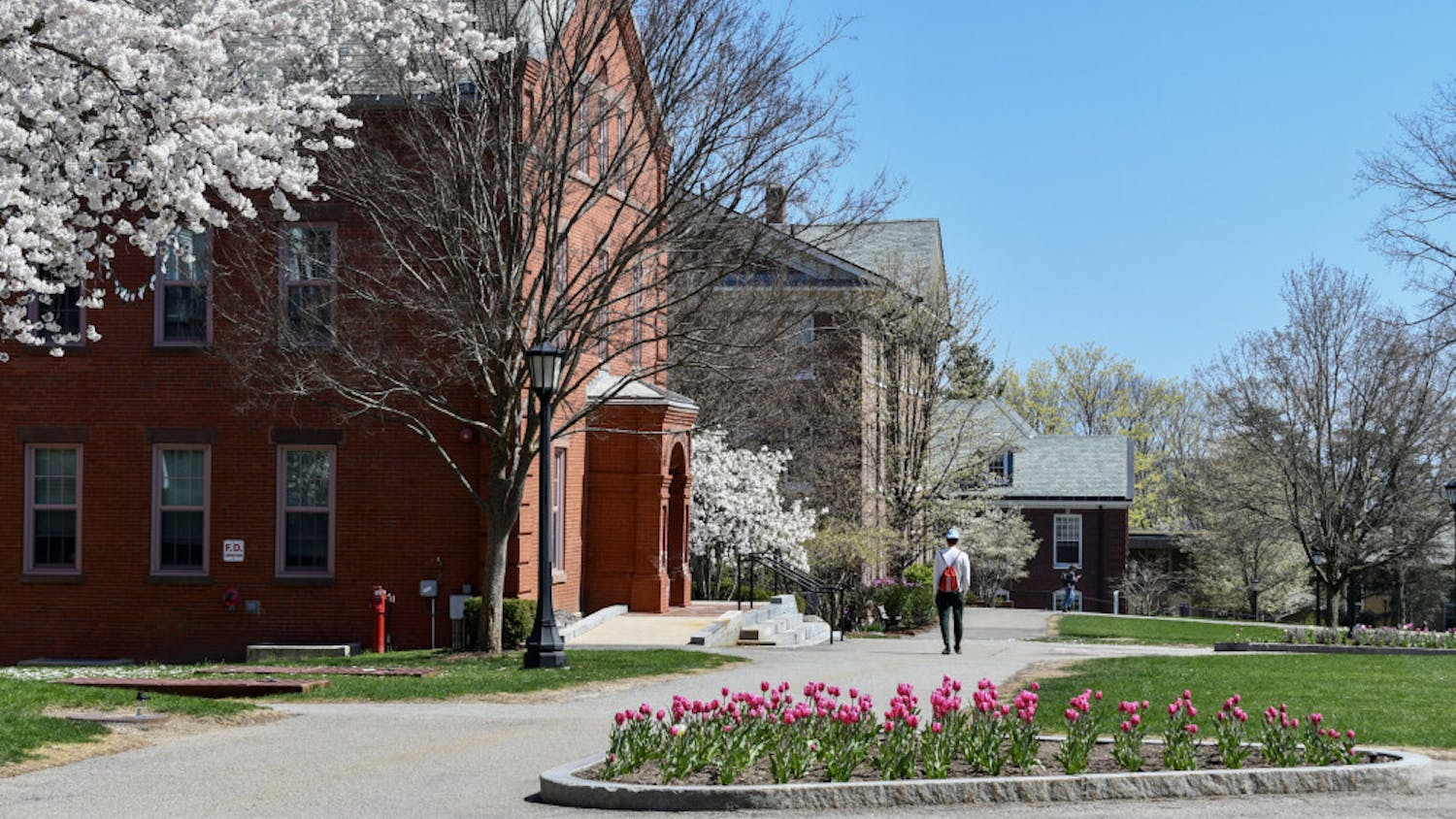Coalition for Palestinian Liberation at Tufts reiterated their demands for Tufts to divest from Israeli corporations in a protest on Wednesday, three days after a ceasefire deal between Israel and Hamas went into effect. Drawing roughly 30 protestors, the protest was announced by CPLT in a joint Instagram post with Somerville for Palestine and Medford for Palestine on Jan. 18.
“In light of the recent ceasefire, it is more urgent than ever that we take this moment to pressure our institution to drop its lethal ties,” the post read.
CPLT has remained active following the disaffiliation of Students for Justice in Palestine at Tufts from the university on Nov. 15, after SJP’s suspension was extended until 2027. The coalition is made up of over 43 student organizations on campus, according to the CPLT’s Instagram bio.
Protesters gathered at 12 p.m. outside the Mayer Campus Center where Tufts University Police Department officers were stationed inside.
“As the ceasefire exchanges progress, the Zionist state will continue in attempts to rob Palestinians of self determination on their own ancestral land. We will not be silent until all of our brothers and sisters in Palestine live in freedom,” a speaker at the protest said.
CPLT addressed the inauguration of President Donald Trump and his incoming administration, which occurred just days earlier. The group denounced Trump and former President Joe Biden’s administration alike.
“The violence that Trump threatens is what Black and indigenous people have faced here for centuries. The Democrats uphold the colonial status quo for which fascism was born. There is no better example of this than in Palestine. Under the Biden administration, Palestinians, victims of settler colonization, were subjected to a still ongoing genocide,” another speaker said.
Since last August, Tufts administration has been working to determine whether university leadership should uphold a policy of institutional neutrality on issues that do not directly affect the university. CPLT criticized the decision of university leadership to refrain from condemning Israel’s war in Gaza.
“We must continue to strengthen each other and highlight the hypocrisies of institutions like Tufts that uphold this violence under the guise of political neutrality,” the speaker said.
The group’s demands also include Tufts’ disclosure and divestment from Israeli corporations in addition to cutting study abroad and research ties to Israel.
CPLT denotes Tufts’ Center for Applied Brain and Cognitive Science lab — a joint research initiative between the School of Engineering and the U.S. Army DEVCOM Soldier Center located in the Joyce Cummings Center — as evidence of the university’s support of the U.S. military and Israeli Occupation Forces.
“The U.S. military trains with and shares research with the IOF, making this lab a key site of tufts’ complicity in the genocide,” a flyer handed out by protesters read.
At around 12:20, the group walked down Professor’s Row from the campus center, followed by TUPD officers, to the JCC. As the group arrived at the JCC, TUPD officers stood in front of the JCC doors, informing visitors and students that they were not permitted inside.
Protesters marched in a circle outside the building, joined by a handful of local residents. One in particular, local to Cambridge, walked in solidarity with the students.
“I’m 72 years old. I’ve been part of support work for humanizing Palestinians and [for] an end to this war on Palestine, paid forward [by] my tax dollars, and I felt that the students here are being very courageous at this time, especially in light of this new administration,” the resident said.
Student protesters were approached by Daily reporters but declined to speak or provide a statement. Non-participating bystanders outside the JCC, unable to attend classes and meetings, said they did not understand the purpose of the protest or the inconvenience it caused.
“I think it’s absolutely ridiculous that the police aren’t letting people into the building because of safety issues, even though there’s no safety issues and it’s a peaceful protest,” a student said.
According to Patrick Collins, executive director of media relations, the doors were closed “to ensure that all academic activities and normal business operations inside continued without interruption.”
While protesters transitioned to the JCC, a TUPD officer to the side of the protesters was seen recording the demonstration.
“TUPD made video recordings of the protest to ensure there is an accurate record of the event,” Collins wrote in a statement to the Daily.
After protesters left the area around 1 p.m., access to the building was reopened to students and visitors.
“The protesters took a number of unsafe actions, including walking into traffic, impeding cars on Boston and College Avenues, and ignoring the directions of police officers,” Collins wrote.
“As is our practice, we are reviewing the incident and will hold accountable any student found to have engaged in conduct that violates university policy or the student code of conduct,” he wrote.






